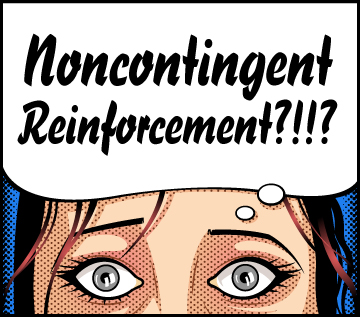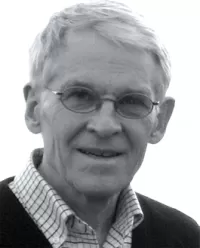Behavior Analysis or Behavioral Enviroscience?
Who am I? “I am a behavior analyst,” I answer in whatever circumstance the question arises. I then have to explain why my first identity is not that of psychologist (yes, I am a professor of psychology; no, I am not psychoanalyzing you), what I do, and how what I do is about the most interesting thing one could do with one's life, all to the spectacle of increasingly glazed over eyes of the person who is nominally listening to what I am explaining.
I have to admit that I am a little unsure of being labeled a behavior analyst. The label really doesn't capture well what I do. I am not just concerned with behavior as behavior—far too structural given my history – I am concerned with the environmental determinants of behavior. I need to describe what I do in terms of the relations between environmental variables - past and present -, and behavior.
 The gradual (and incomplete, even for me) shedding the label of "psychologist" in favor of our present one has been an appropriate step for those of us who study behavior in environmental context, but even our present disciplinary label doesn’t go far enough. Consider our kin who used to call themselves "physiological psychologists." These days this same group of people gleans far more cachet from being "behavioral neuroscientists". The name has caught on in both academe – many former departments of psychology are giving way to at least adding "behavioral neuroscience" to their department's moniker – and in the public's eye.
The gradual (and incomplete, even for me) shedding the label of "psychologist" in favor of our present one has been an appropriate step for those of us who study behavior in environmental context, but even our present disciplinary label doesn’t go far enough. Consider our kin who used to call themselves "physiological psychologists." These days this same group of people gleans far more cachet from being "behavioral neuroscientists". The name has caught on in both academe – many former departments of psychology are giving way to at least adding "behavioral neuroscience" to their department's moniker – and in the public's eye.
Because I would like for us to have a more descriptive label, I’ll propose we change our name to fit better what we do by renaming our discipline "behavioral enviroscience." Just as behavioral neuroscientists study (more or less) the neurological basis of behavior, we study (very well) the environmental basis of behavior. Of course, we analyze behavior. But so do neuroscientists and even, in their way, cognitive psychologists. The label "behavior analyst" is not truly descriptive of what we do because it focuses on behavior rather than behavior in context. The label "behaviorology," proposed by others, suffers the same weakness as behavior analysis in that it fails to identify the critical role of environment in what we do. It also once was suggested that our science be called “praxics,” making us praxiologists or maybe praxicologists. Too much like another professional label that is the butt of too many jokes. More to the point, though, the name does not immediately suggest anything to do with behavior and its environmental determinants, at least to the reader unfamiliar with the term’s origins and meaning.
So, who would we be if we followed my proposal? We all would be "behavioral enviroscientists" just as now we all are "behavior analysts." For further clarification, one could precede the label with "basic" or "applied" just as we currently do.
 There is resistance to change of names for things, even when they are illogical. “Noncontingent reinforcement" continues to be up there with my worst behavior-analytic nightmares (see Lattal & Poling, 1981), but in almost every issue of the Journal of Applied Behavior Analysis, there it is, as illogical and confused as ever. Nonetheless, some of us continue to press for a change in the label, holding out hope that someday logic will win out over bad habit.
There is resistance to change of names for things, even when they are illogical. “Noncontingent reinforcement" continues to be up there with my worst behavior-analytic nightmares (see Lattal & Poling, 1981), but in almost every issue of the Journal of Applied Behavior Analysis, there it is, as illogical and confused as ever. Nonetheless, some of us continue to press for a change in the label, holding out hope that someday logic will win out over bad habit.
Behavioral enviroscience may or may not be the ultimate solution for a rename, but we do need a name that more accurately both captures and differentiates the relevant dimensions of our science.
Reference
Lattal, K. A., & Poling, A. D. (l981). Describing response-event relations: Babel revisited. The Behavior Analyst, 4, 143-152.



